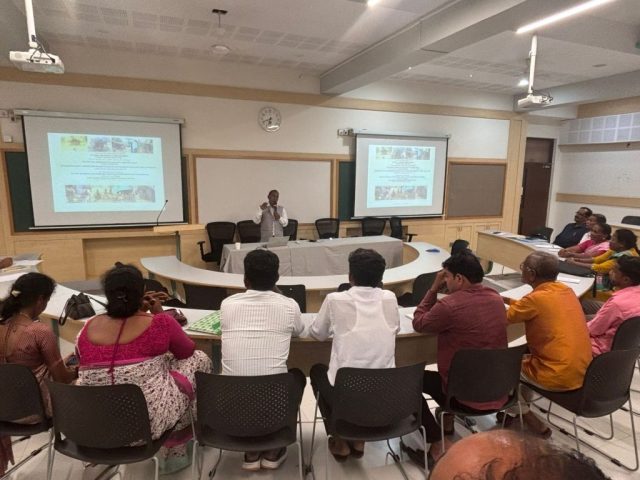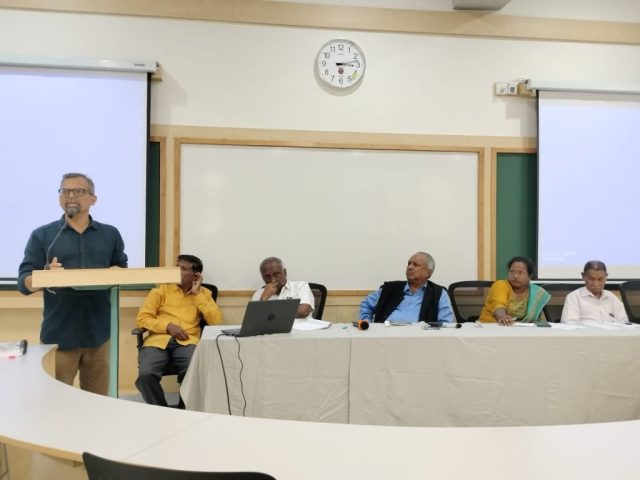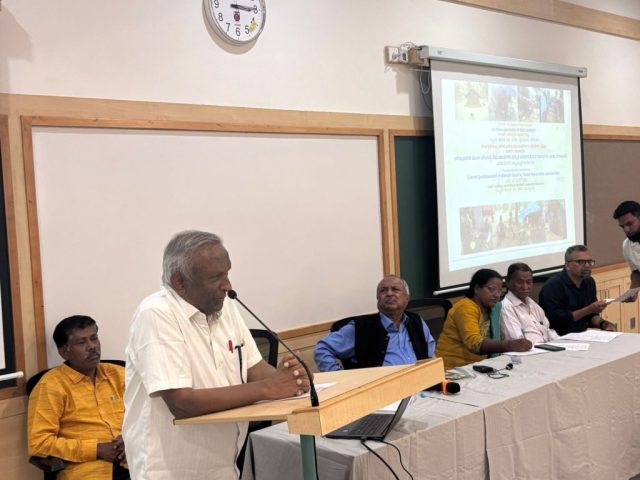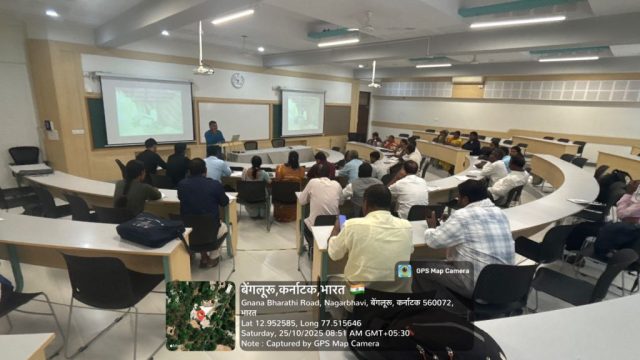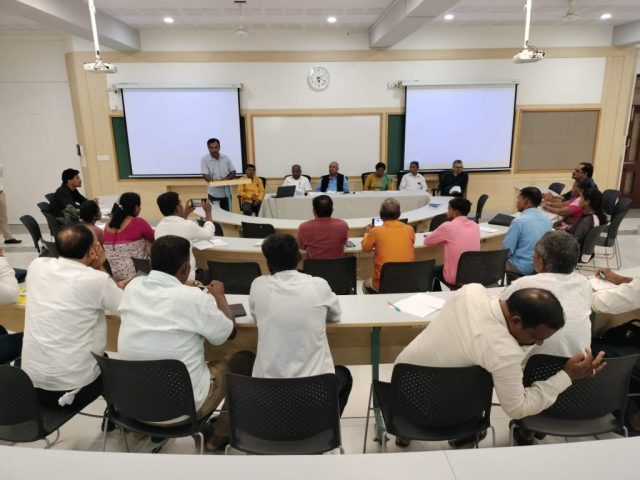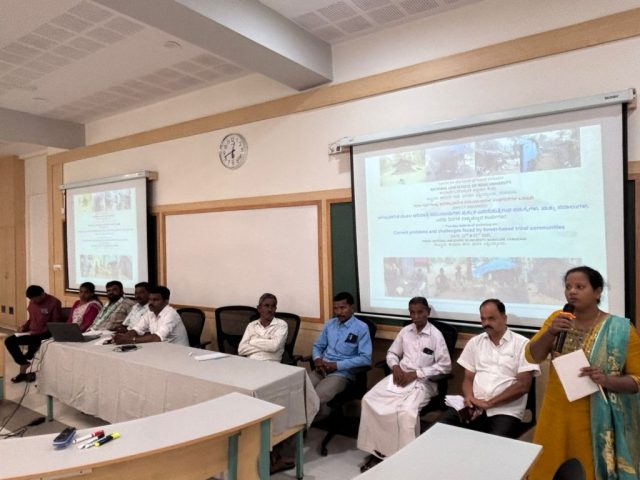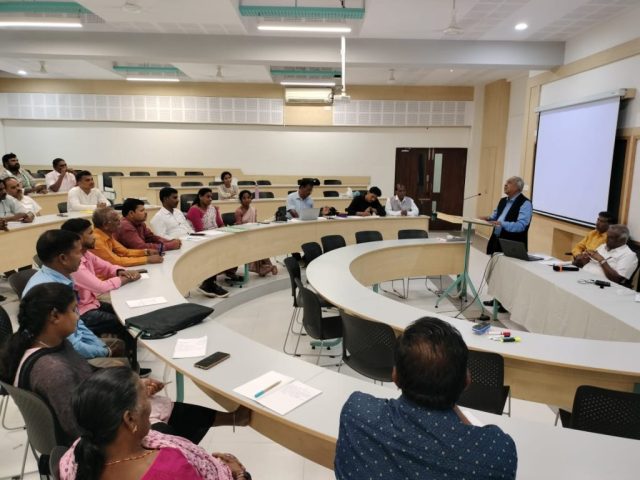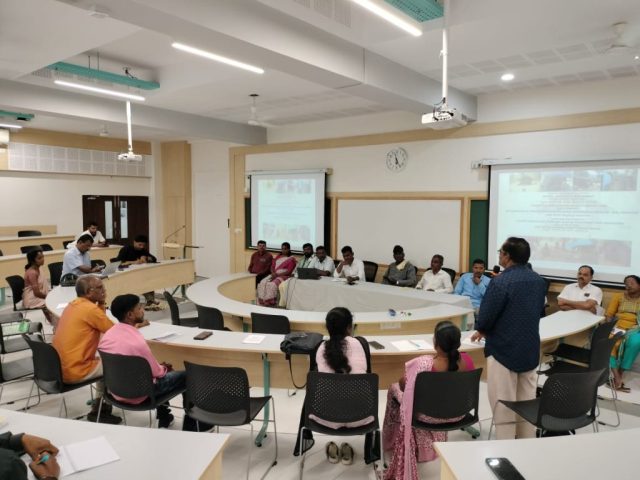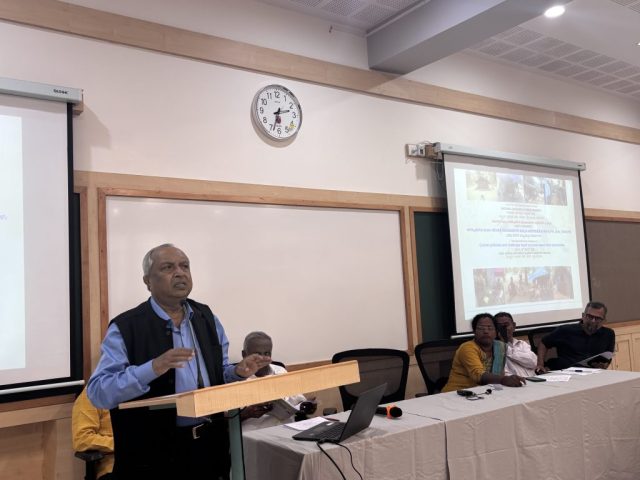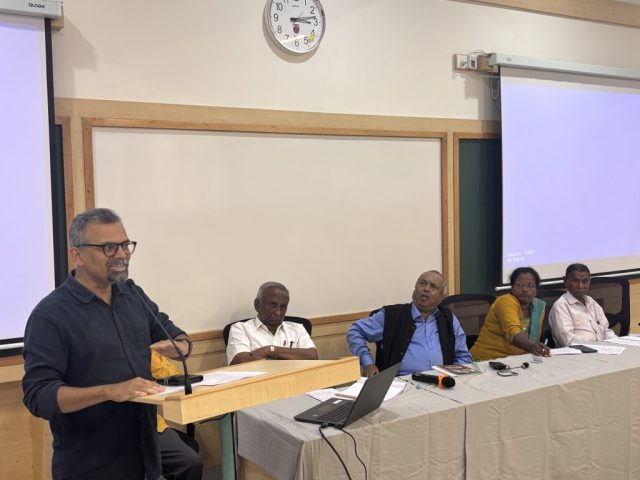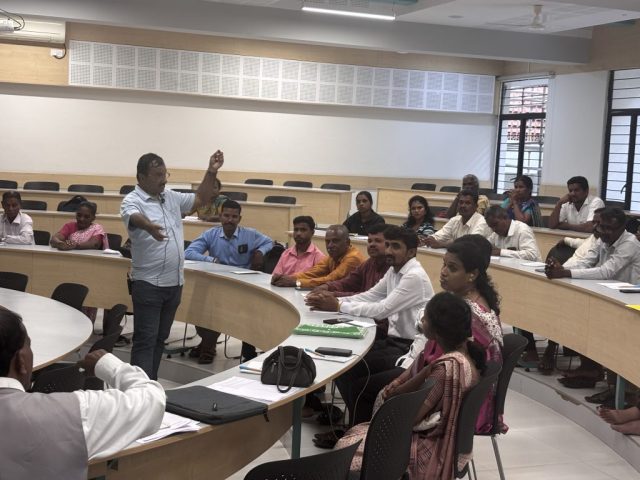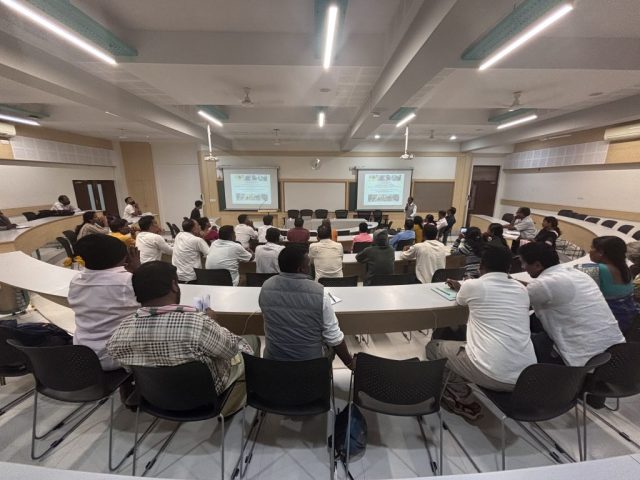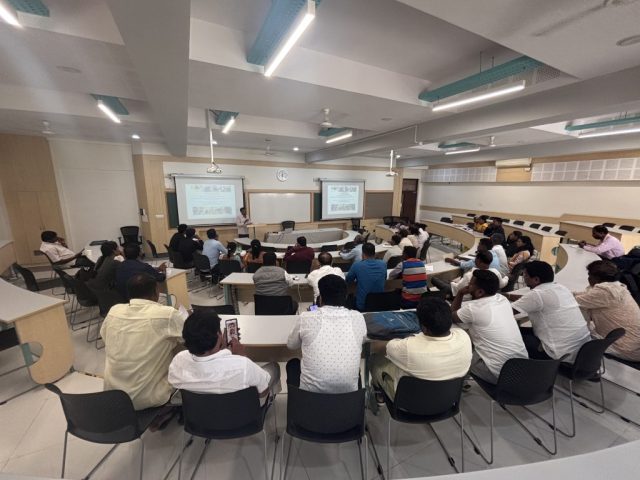State-Level Workshop on the Current Problems and Challenges Faced by Forest-Based Indigenous Communities | CSSI, NLSIU & Karnataka State Federation of Forest-Based Community Organisations
October 30, 2025
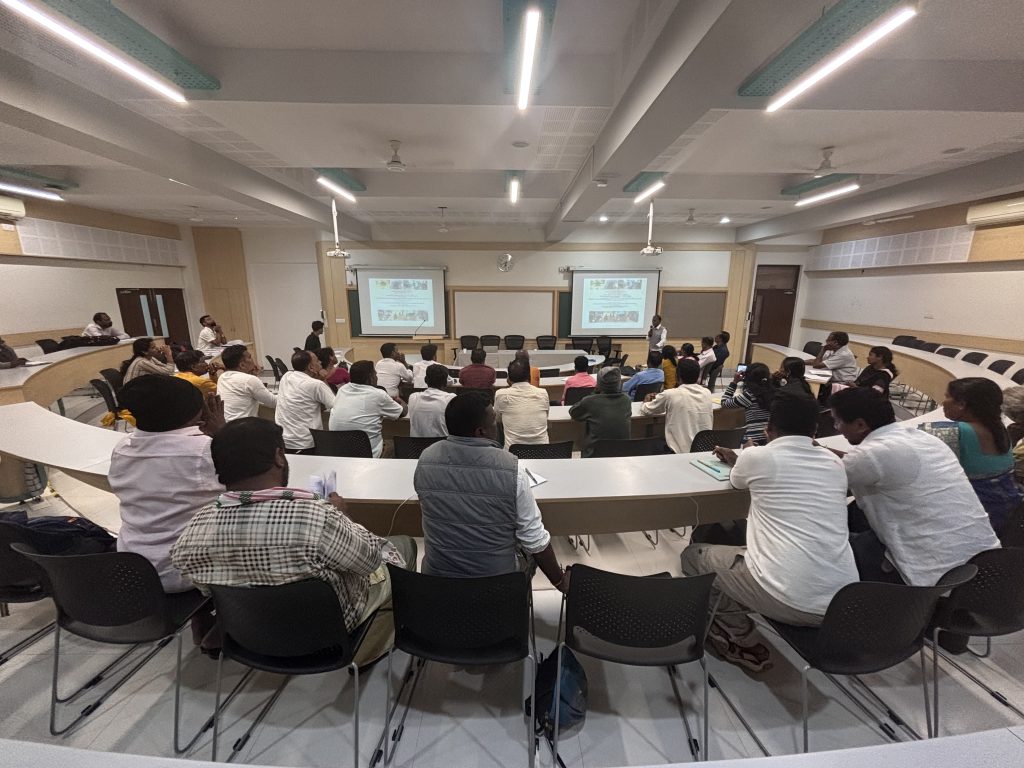 The Centre for the Study of Social Inclusion (CSSI) at NLSIU, Bengaluru, in collaboration with the Karnataka State Federation of Forest-Based Community Organisations, has been working over years to formulate community development plans for vulnerable and forest-based communities in Karnataka.
The Centre for the Study of Social Inclusion (CSSI) at NLSIU, Bengaluru, in collaboration with the Karnataka State Federation of Forest-Based Community Organisations, has been working over years to formulate community development plans for vulnerable and forest-based communities in Karnataka.
In continuation of this initiative, a two-day State-level workshop was organised at the NLS campus on October 24 & 2025 to understand the current problems and challenges faced by forest-based and indigenous tribes of Karnataka. This includes tribes such as Jenukuruba, Iruliga, Soliga, Yarava, Panian, Hasalaru, Gowdalu, Siddi, Koraga, Betta Kuruba, Kudia, Toda, Kanian, and Malekudiya communities.
Context
Tribal communities living in forest regions remain significantly marginalised in key areas such as education, health, and livelihood opportunities. Districts covered under the Western Ghats include major forest areas such as Brahmagiri, Talakaveri, and Pushpagiri, with three wildlife sanctuaries and one national park (Rajiv Gandhi National Park). The issues of tribal rights, land ownership, and rehabilitation remain major challenges in these regions.
Karnataka has 12 major forest-based tribal communities comprising 47,795 families (total population: 1,92,720). Even today, these communities continue to depend on forests for their livelihoods, deprived of basic facilities and development benefits including access to adequate education, healthcare, housing, or employment opportunities. The grants and reservations meant for Scheduled Tribes have not adequately reached them. They remain economically, educationally, and politically backward, excluded from mainstream development processes.
This workshop was organised with community participation to deliberate on these pressing issues. A total of 50 representatives, including community leaders, social activists, office bearers of community organisations from 12 tribal groups, and researchers, participated in the workshop.
Workshop Highlights
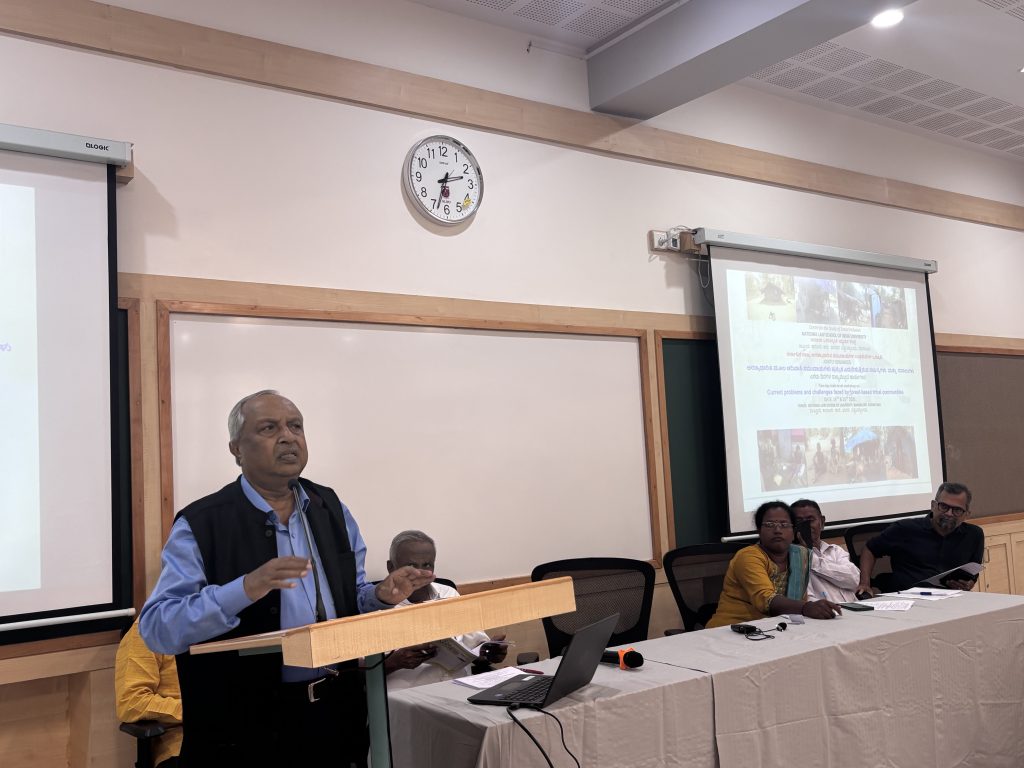 Day 1
Day 1
The session began with a welcome address by Dr. Chandrashekhar R.V., Research Assistant at CSSI, who anchored the event. This was followed by an introductory speech by Sri Muthappa, who emphasised the need for unity among all 25 State-level tribal organisations to collectively implement government policies and ensure that the benefits reach every tribal community.
Justice Nagamohan Das (Retd Judge, Karnataka High Court), who inaugurated the workshop, expressed his solidarity with the struggles of tribal communities and commended their deep ecological and cultural connection with nature. He stressed that those who worship nature and trees as divine beings inherently protect forests rather than destroy them. He also spoke about the oppression faced by forest dwellers from certain officials and called for a comprehensive State-level survey to accurately document the demographic, social, and economic conditions of tribal communities.
Justice Das also shared examples from his judicial experience, illustrating regional differences in tribal issues. He highlighted the importance of recognising regional cultural practices, such as local festival holidays for tribal children, and urged the government to focus on scientific forest conservation, research on plant-based medicines, and sustainable use of forest produce for the community’s economic empowerment. He further discussed the provisions of the Forest Rights Act (2006) and emphasised the need for legal awareness, community unity, and scientific problem-solving to achieve justice for tribal people.
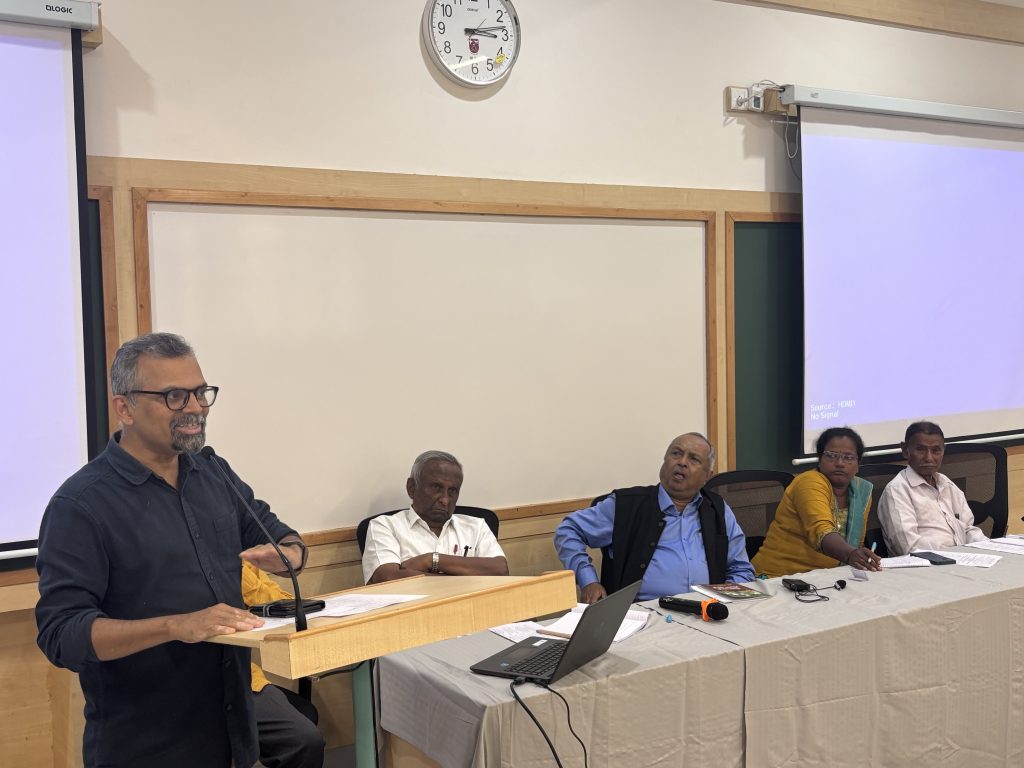 Prof. Sony Pellissery, Coordinator of CSSI, spoke on the constitutional right to development, the challenges of democracy, and the scarcity of natural resources affecting forest-based communities. Senior NLS faculty member Prof. Babu Mathew, who presided over the session, discussed the unique character of the Indian Constitution and highlighted the challenges faced by unorganised workers. He urged that labour laws must also cover unorganised and tribal workers and the need to advocate for legal reforms protecting all 12 forest-based tribal communities.
Prof. Sony Pellissery, Coordinator of CSSI, spoke on the constitutional right to development, the challenges of democracy, and the scarcity of natural resources affecting forest-based communities. Senior NLS faculty member Prof. Babu Mathew, who presided over the session, discussed the unique character of the Indian Constitution and highlighted the challenges faced by unorganised workers. He urged that labour laws must also cover unorganised and tribal workers and the need to advocate for legal reforms protecting all 12 forest-based tribal communities.
Dr. Chandrashekhar elaborated on the possibilities and challenges of internal reservation within Scheduled Tribes, the structural discrimination prevailing in society, and the lack of awareness about constitutional rights. He pointed out that the introduction of EWS reservations had widened social gaps and stressed that equity is more important than mere equality in the implementation of government schemes.
Later in the session, Dr. Ganesh Kalkar, Retired Education Officer, Heggade Devana Kote, Mysore, along with other leaders analysed reports of statutory commissions discussing how their findings could aid in tribal development. This included reports such as the Roy Burman Commission, Buriya Commission, B.T. Sharma Report, and Dr. Mohammed Peer Report.
Prof. Jadeyegowda, University of Agricultural Sciences (UAS), Bengaluru, also emphasised the importance of education and legal literacy among tribal youth and urged that all research on tribal issues be conducted scientifically and shared widely to empower communities.
Day 2
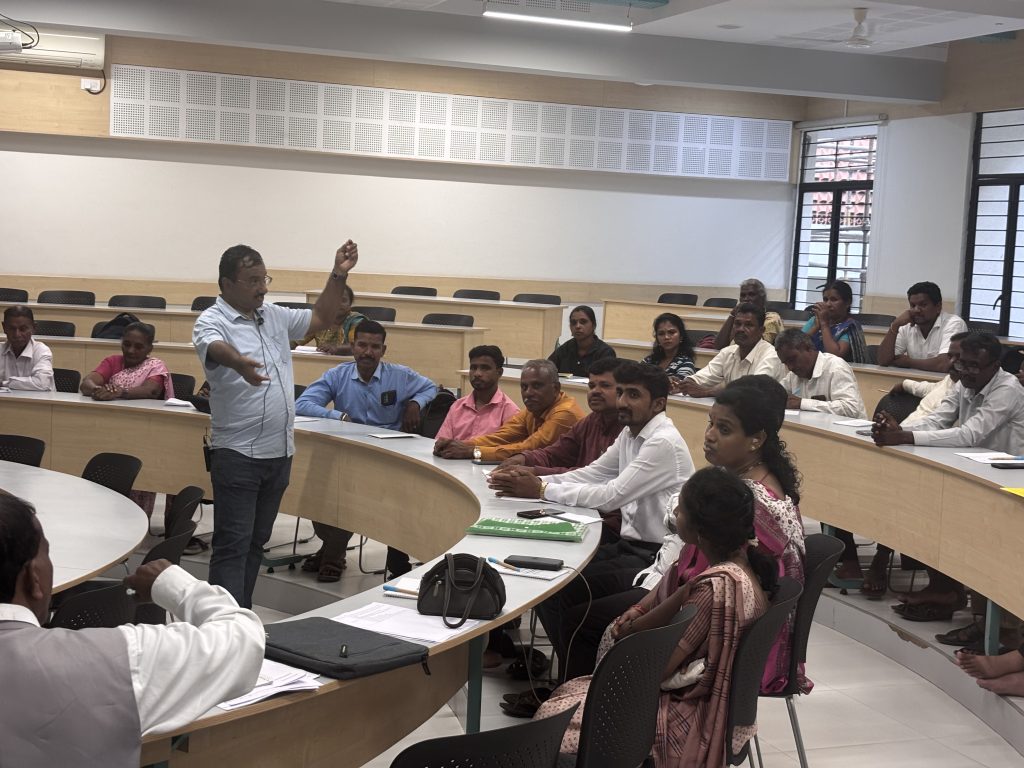 Dr. Chandrashekhar presented information on constitutional provisions and opportunities for Scheduled Tribes and explained the purpose and scope of the Karnataka State Tribal Research Institute (KSTRI). He highlighted the need to form a TRI Advisory Board, and elaborated on the SCSP/TSP (Scheduled Caste Sub-Plan / Tribal Sub-Plan) mechanisms — explaining how funds are allocated, monitored, and often refunded to the treasury if not properly utilised.
Dr. Chandrashekhar presented information on constitutional provisions and opportunities for Scheduled Tribes and explained the purpose and scope of the Karnataka State Tribal Research Institute (KSTRI). He highlighted the need to form a TRI Advisory Board, and elaborated on the SCSP/TSP (Scheduled Caste Sub-Plan / Tribal Sub-Plan) mechanisms — explaining how funds are allocated, monitored, and often refunded to the treasury if not properly utilised.
Discussions and Q&A sessions followed on various themes including rights and development, internal reservations and its criteria, budget planning, utilisation of TSP funds, and the quality of implementation of welfare schemes. Participants identified pending works and gaps in execution, noting that when grants were released, they often failed to reach the intended beneficiaries.
A core committee was formed to monitor these issues. Shailendra Kumar, Yarava Comunity Leader, HD Kote , Mysore, and Sri Muttiah, Convener, Karnataka State Federation of Forest Based Communities Organisations were appointed to coordinate activities from Bengaluru. It was also resolved that village-level meetings would be organised to review progress and ensure community accountability.
Ms. J. K. Muthamma is a tribal activist from Kodagu, Karnataka, who received the Maharshi Valmiki Award in 2025 for her work with tribal communities, was also felicitated during this workshop.
Workshop Recommendations to the Government
The following recommendations were collectively proposed at the workshop to address gaps and ensure inclusive and sustainable development of Karnataka’s forest-based indigenous communities:
1. Formation of a Karnataka Adivasi Development Corporation
2. Establishment of a permanent research institution
3. Improvement of education in Ashram schools
4. Regularisation of contract staff
5. Utilisation of the ₹200 crore special package
6. Direct recruitment policy for tribals
7. Strengthening the Karnataka State Tribal Research Institute (KSTRI), Mysuru
8. Effective implementation of the Forest Rights Act (2006)
9. A separate corporation for nomadic and semi-nomadic communities
10. Implementation of pending reports
11. Expansion of ITDP centres
12. Implementation of internal reservation within STs
13. Rehabilitation of tribal families in coffee plantation line houses.


